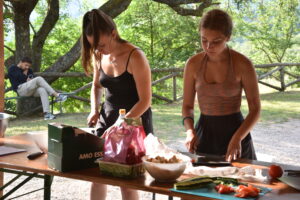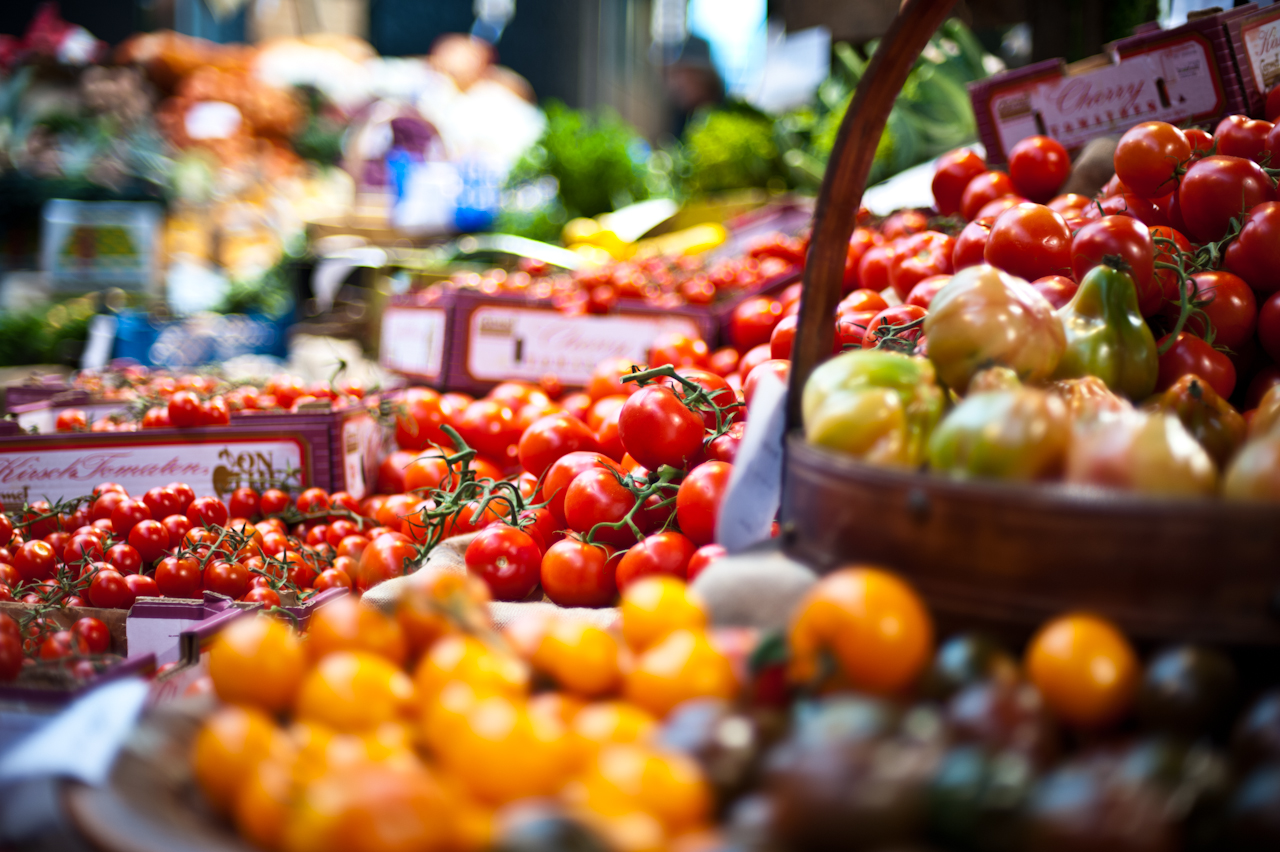The project involved cooperation between experts representing the economy and science. The main task of the project was the exchange of experience, transfer of scientific knowledge, the compilation of knowledge and intensification of cooperation between various entities, creating a cooperation network, qualifying and expanding the educational offer in order to make the general public aware of the importance of sustainable nutrition.
Project activities were preceded by a survey conducted among primary and secondary school students (aged 11-16) on knowledge in the field of food production and handling in the Euroregion Nysa and eating habits. The results of the study allowed for the development of bilingual educational materials (including educational videos), referring to the curricula and an educational platform on sustainable nutrition, which will support further integration of educational systems in Saxony in Germany and Lower Silesia in Poland.
The Research and Didactic Station in Radomierz as well as a didactic kitchen with training rooms we created. It is one of the nutrition education centers to help promote health, good eating habits and not wasting food. A nutrition education center was also established in Hoyerswerda, Saxony. In the newly established facilities, it is planned to conduct workshops for children and youth on how to prepare meals in such a way that they are healthy, and their preparation is well thought out so that as few ingredients as possible are left unused.
As part of the project, additional teaching staff was trained in a way that enabled the creation of a network of nutrition educators in the long term, who – being residents of the borderland – will also support educational activities undertaken in border areas.
NETSUS is also an interdisciplinary network of sustainable nutrition focusing on three issues: science, economy and knowledge transfer.
In order to strengthen the cross-border exchange between the research sphere, the food industry and nutrition education, three working groups dealing with the above-mentioned areas we created.
The Science Working Group analyzed national and international research on nutrition and food, as well as scientific findings for sustainable nutrition in the future.
The task of the Knowledge Transfer Working Group was to collect and prepare information for consumers, the economy and service providers. Intensive exchange and support primarily within one of the main topics of our project, i.e. a digital didactic and educational platform were expected.
The Economy Working Group intensively dealed with the subject of sustainable nutrition and sustainable development in the Nysa Euroregion. The main task was to support producers, processors and service providers in the region.
Impact: NETSUS has the potential to make a significant impact in promoting sustainable food consumption and production practices thanks to the wide exchange of experience, transfer of scientific knowledge, creating a cooperation network, qualifying and expanding the educational offer in order to make the general public aware of the importance of sustainable nutrition.
Replicability: NETSUS project provided wide range of educational offer that can be easily replicated and adapted to different contexts and audiences. The project’s emphasis on online and digital resources makes it accessible to a wide range of people, regardless of location or language. The project’s collaboration with schools and universities also provides a model for integrating sustainable food practices into educational curricula, which can be replicated in other settings.
Youth attitudes: A big challenge will certainly be to convince children and youth to adopt a pro-health attitude. It is also very important to implement a learning-by-doing approach. That is why workshops on how to prepare meals in such a way that they are healthy, and their preparation is well thought out so that as few ingredients as possible are left unused were organized. Promoting sustainable food consumption and production practices requires behavior change, which can be difficult to achieve. The project’s educational resources and tools may not be sufficient to overcome ingrained habits and cultural norms related to food choices.
Logistics: Inadequate food supply chains in countries or regions, people do not have regular access to sufficient, safe, and nutritious food
Costs: Sustainable and certified produce is more expensive, and cost is a recognized barrier to accessing a healthy, sustainable diet
Infrastructure: limited infrastructure for local food production, processing, and distribution, which can make it challenging to source local food for schools. Building and maintaining this infrastructure can be expensive and time-consuming.
Inheritance: shaping bad eating habits at home, parents’ lack of time, life in a hurry, reaching for unhealthy snacks
Educational offers: As there are not many centers dealing with nutritional education in rural areas, and access to central centers located in large cities is both expensive and time-consuming, young people have limited access to educational offers.




